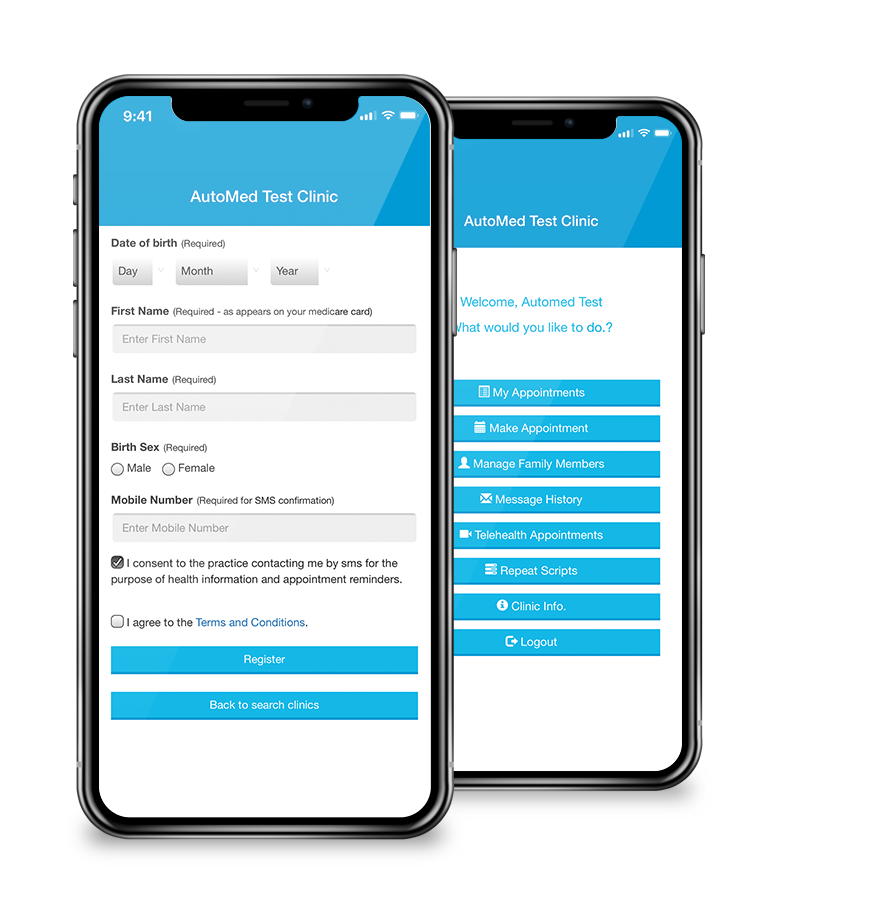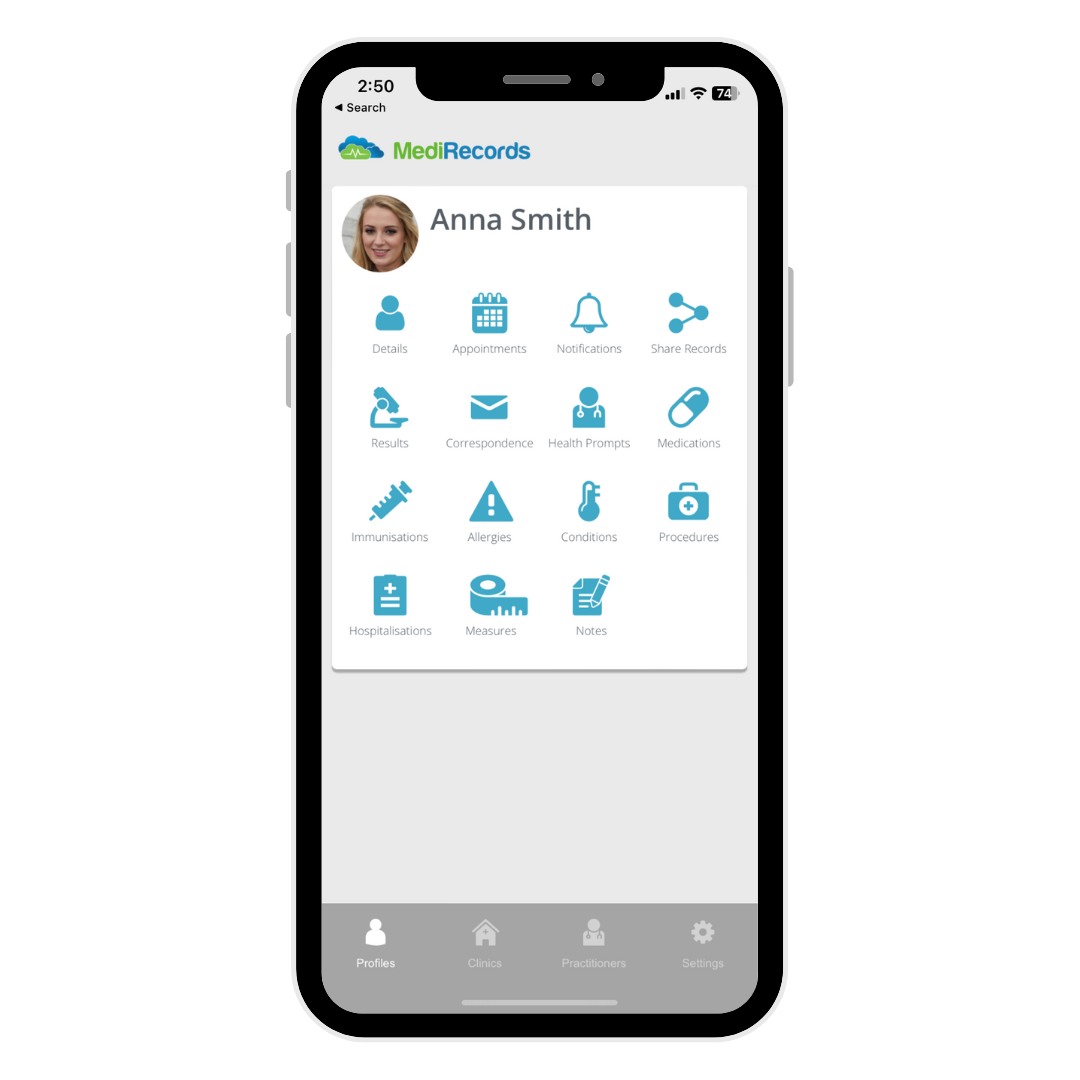Changing Patient Experience with a User-Friendly Mobile App for Clinics
Changing Patient Experience with a User-Friendly Mobile App for Clinics
Blog Article
The Future of Medical Care: Why Clinics Need a Mobile Application Today
As the healthcare landscape continues to evolve, clinics encounter installing pressure to adjust to person assumptions for higher ease and accessibility. The assimilation of mobile applications can serve as a crucial method for improving client involvement and enhancing procedures.
Transforming Person Assumptions
As the landscape of medical care progresses, individual expectations are undergoing a substantial change. Today's people are significantly looking for convenience, access, and personalized care.
Moreover, patients are becoming much more educated and equipped, frequently researching therapies and conditions online prior to appointments. This heightened recognition is paired with a need for openness in health care processes, including cost estimates and therapy choices. As a result, service providers are obliged to adjust by adopting electronic tools that enhance the person experience.
The expectation for timely and reliable communication has never been higher, with numerous people thinking about responsiveness a crucial component of top quality care. mobile app for clinics. In this developing landscape, health care companies need to recognize these altering expectations and utilize mobile applications to cultivate a more patient-centric strategy, making sure that they not just satisfy but surpass the requirements set by today's educated consumers
Enhancing Person Interaction

Mobile applications promote communication between clients and health care companies, making it possible for real-time visit organizing, tips for medicine adherence, and direct messaging functions. These capabilities not just improve benefit but also build a feeling of responsibility among clients. Mobile applications can use educational web content customized to specific demands, aiding people much better comprehend their conditions and therapy choices.
The combination of gamification components within healthcare applications can also motivate clients to participate in healthy and balanced behaviors, strengthening positive lifestyle modifications. By tracking progress and rewarding success, people are most likely to stay devoted to their wellness goals. Inevitably, enhancing person engagement through mobile applications causes enhanced health and wellness outcomes, better patient contentment, and a more collective medical care experience. Facilities that prioritize this aspect will likely see a significant effect on the high quality of treatment supplied.
Enhancing Clinic Procedures
Simplifying clinic operations is important for improving process effectiveness and maximizing individual treatment. The implementation of mobile applications can considerably lower management burdens, allowing doctor to concentrate more on person interactions. By automating visit organizing, client check-ins, and invoicing procedures, centers can minimize wait times and enhance total operational effectiveness.
Mobile apps additionally help with real-time accessibility to client records, making it possible for medical care specialists to make informed decisions promptly. This immediacy not only improves the quality of treatment but likewise decreases the chance of mistakes connected with lost or dated information. Leveraging mobile innovation supports an extra orderly strategy to taking care of client follow-ups and therapy strategies, making certain that no crucial actions are overlooked.
In addition, mobile applications can enhance supply administration by supplying facilities with tools to keep an eye on drugs and products successfully. This permits prompt replenishment and assists stay clear of interruptions in person care because of stock lacks. By integrating these performances into their day-to-day operations, centers can produce a much more cohesive and efficient environment, ultimately resulting in improved client end results and complete satisfaction. Embracing mobile technology is not simply a trend; it go to my site is an essential evolution in the health care landscape.
Improving Interaction Networks
Reliable communication is often pointed out as a cornerstone of quality medical care shipment. In today's busy clinical setting, mobile applications can significantly boost interaction networks in between facilities, clients, and healthcare carriers. By integrating mobile applications right into their operations, centers can promote real-time interactions, making sure that people get prompt details concerning their appointments, examination outcomes, and therapy plans.
Mobile apps additionally empower patients to interact directly with their medical care teams with safe messaging functions. This direct line of communication cultivates a feeling of interaction and permits prompt information of worries, which can result in far better adherence to therapy protocols. Moreover, press notices can advise people of upcoming visits or medication routines, lowering no-show rates and boosting overall health end results.

Staying Affordable in Health Care
In a rapidly progressing medical care landscape, organizations should focus on development and versatility to preserve an one-upmanship. More Bonuses The integration of mobile applications into medical care services is no more optional; it is necessary for centers aiming to boost person involvement, simplify procedures, and enhance overall service delivery.
As patients increasingly rely upon digital systems for health monitoring, centers that fail to adopt mobile technology danger falling back. A well-designed mobile app can provide functions such as consultation scheduling, telemedicine consultations, and access to clinical documents, providing clients with ease and promoting loyalty.

Competitors are additionally purchasing mobile services, so remaining ahead requires continual renovation and remaining educated concerning technical improvements. Facilities must not just execute mobile applications yet additionally involve in routine updates and refinements. Inevitably, the successful assimilation of mobile technology will certainly identify forward-thinking medical care companies and established the benchmark for patient-centric care in an electronic globe.
Verdict
In final thought, the combination of mobile applications in facilities is imperative to deal with the developing landscape of patient expectations. By improving patient involvement, simplifying procedures, and boosting interaction channels, clinics can substantially improve health and wellness end results. Additionally, the adoption of mobile innovation settings facilities to stay competitive in an increasingly digital health care atmosphere. Ultimately, the critical application of mobile apps represents a critical step towards supplying Get the facts personalized and obtainable medical care, therefore meeting the needs these days's equipped patients.
Ultimately, improving individual interaction through mobile applications leads to improved health outcomes, better individual fulfillment, and a more collective healthcare experience.Mobile applications likewise assist in real-time access to client documents, allowing medical care specialists to make educated choices rapidly. In today's hectic clinical atmosphere, mobile applications can substantially improve interaction networks between clinics, individuals, and medical care suppliers.Mobile apps also encourage people to interact straight with their healthcare teams via secure messaging attributes. Inevitably, the calculated application of mobile apps represents a vital action toward providing accessible and individualized health care, thus fulfilling the requirements of today's equipped individuals.
Report this page